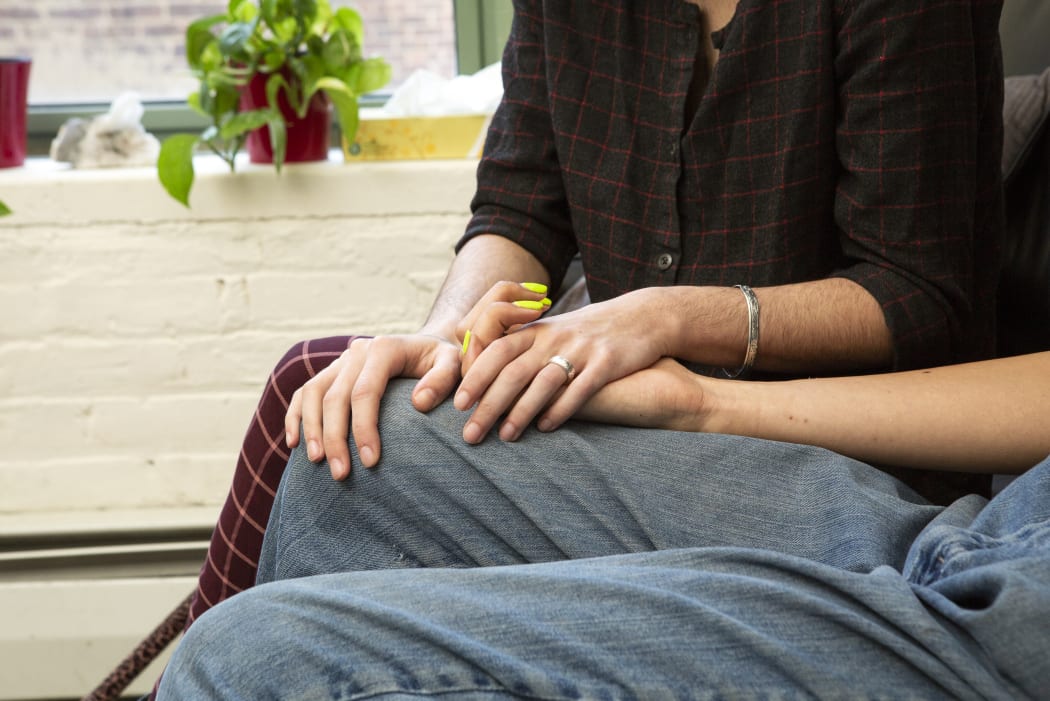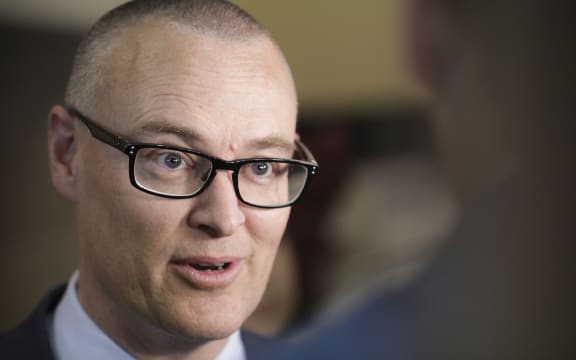Rainbow community organisations are calling on the government to name LGBTQI people in the Mental Health and Wellbeing Commission Bill.

Photo: The Gender Spectrum Collection
More than 70 organisations and 400 community leaders, researchers and individuals have co-signed a written submission to the bill made by rainbow community support service OUTLine.
If it passes its third reading, the Mental Health and Wellbeing Commission Bill will establish a commission tasked with improving the mental health and wellbeing outcomes for New Zealanders.
OUTLine chair Moira Clunie says for the commission to do this, it needs to specifically name rainbow communities.
"We know from evidence and from our community's experience, that rainbow communities face higher rates of mental health problems," Clunie said.
"That's really something we've known about for a number of years - those higher rates are connected with the discrimination and exclusion that we face."
In order to address these, approaches specific to the unique challenges faced by these communities are needed, they said.
"If we're not named in there as rainbow communities then they don't have a requirement to specifically hear from us or work with us.
"What that means is our national mental health response will be designed without effectively meeting the needs of rainbow people."
The rainbow support organisation along with the almost 500 other co-signers support the intention of the bill but say issues of mental distress, addiction and suicidality disproportionately affect rainbow communities.
Their submission asks that the commission be required to specifically establish mechanisms to seek the views of rainbow communities, alongside other populations groups including Māori, Pacific and disabled people, in order to understand the specific needs and drivers of distress and barriers to accessing support that LGBTQI people face.

Health Minister David Clark Photo: RNZ / Ana Tovey
The bill was drafted following a recommendation in He Ara Oranga: the report of the government inquiry into mental health and addiction - which found: "a strong body of evidence shows that rainbow communities have significantly poorer mental health and are at a much higher risk of distress, addiction and suicide."
During the first reading of the bill, Health Minister David Clark said: "The commission will assess how the system improves equity for Māori, Pacific peoples, disabled persons, rainbow communities, and other groups that experience poorer mental health and wellbeing outcomes."
However, the bill itself leaves out rainbow communities among these groups.
The Counting Ourselves report released in September found trans and non-binary members of the rainbow communities suffer from high or very high psychological distress at rates - nine times higher than the general population.
An even higher number of trans and non-binary people, 79 percent, have seriously contemplated suicide and two out of five have deliberately self-harmed in the past 12 months.
Mental Health Foundation of New Zealand chief executive Shaun Robinson said it's vital rainbow communities were named within the bill to ensure appropriate engagement was undertaken.
"An overwhelming body of evidence shows that the rainbow population has significantly poorer mental health and is at much higher risk of distress, addiction and suicide than other people living in New Zealand due to experiences of social exclusion and discrimination.
"Rainbow people accessing mental health services often face dual stigma: stigma related to rainbow identity, and stigma related to mental health problems."
The foundation believed that community and peer-led services were vital for the rainbow-specific mental health community but currently, there was a lack of funding for such services, he said.
The Ministry of Health had given rainbow community organisations written assurance that these communities were a priority in the national mental health response, Clunie said.
"I think this bill is an example of how that doesn't necessarily play out in practice."
The ministry had still not made any specific commitments to rainbow communities, Clunie said, including in the major mental health funding announced in the Budget, requests for proposals for new services, or people invited to be a part of advisory groups.
"There just still isn't really any rainbow focus.
"At the moment there's no real national priority for rainbow mental health and that feels inappropriate."
If established, the commission would:
- Provide system-level oversight of mental health and wellbeing in New Zealand
- Promote alignment, collaboration and communication between government and non-government contributors to mental health and wellbeing
- Monitor and advocate for the collective mental health and wellbeing of New Zealanders


